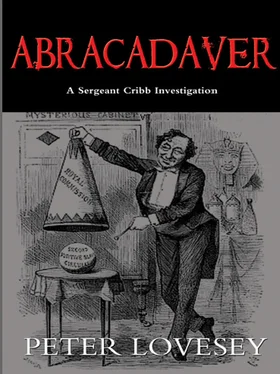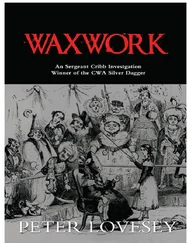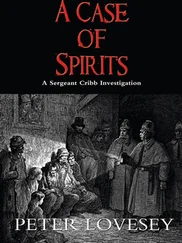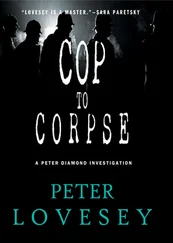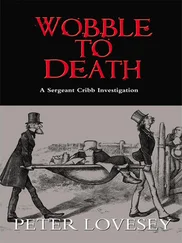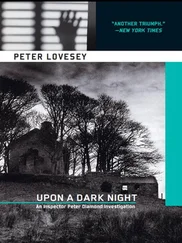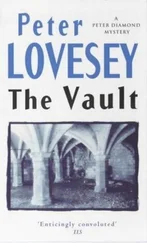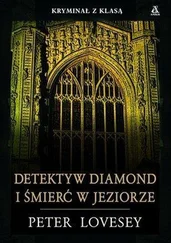The manager smiled. ‘It’s not as simple as that, Sergeant. Music hall isn’t like the legitimate theatre, where everyone’s movements are planned and known. I’m managing a three and a half hour show with twenty-seven acts including dancers. I often have to change the order at very short notice to fit in with the commitments of the star billings. Tonight, for example, I’ve got Miss Jenny Hill on at eight o’clock. Nothing must alter that, because she’s appearing at the Royal Aquarium at nine and the London Pavilion at a quarter past ten. So I shall change the order of the acts to ensure that she goes on in time to make a cab journey across to Tothill Street. No two nights in the music hall are the same, you see.’
‘But you must have some notion who was in the wings at that time,’ insisted Cribb.
‘Very well,’ said the manager acidly. ‘Let’s make an inventory, if that’s the way Scotland Yard would like it. There would be the Red Indians, Henry and Cissie Greenbaum, waiting while Miss Blake was on, and the singing policemen, the Dalton brothers, and their assistant Vicky. Then there are up to nine stage-hands and scene-shifters dispersed on either side of the stage, two female dressers and one male, three fly-men looking after the curtain and the act-drops, two lime-boys on their perches in the flies, two callboys, the gasman at the index-plate, my assistant, myself and any one of the other twenty-four acts who cared to look in. I would say almost a hundred people had a right to be there, Sergeant.’
‘In that case someone must surely have seen the dogs being changed over.’
‘I doubt it. Most of us are far too occupied with our own duties to notice anything like that. Moreover, the wings are in semi-darkness for the whole of the Red Indian act, to achieve the special lighting effect onstage. That’s when the basket was opened, in my opinion.’
A murmur of assent on Cribb’s left provided him with a sudden thought. ‘Where were you positioned, Major?’
Major Chick coloured noticeably. ‘Why—er—in the gallery on the side-wall above the stage, where the ropes and so forth are controlled.’
‘The flies,’ explained the manager.
‘Didn’t you see anything?’
The Major pulled at his moustache. ‘I was observing the stage, dammit.’
‘But of course.’ Cribb placed a reassuring hand on Chick’s shoulder. ‘Well now, Major, I’m really uncommon fortunate having you here to advise me—a professional investigator on the scene of the crime a full week before it was committed. That’s a gift from Providence, wouldn’t you say?’
The Major nodded guardedly. He was plainly not used to being thought of in that way.
‘You’ve had time to meet the staff and performers and form an estimate of ’em,’ continued Cribb, ‘and you’ll have noted down anything irregular that happened this last week.’
It was plain from the Major’s expression that he had not. ‘Fact of the matter is, Sergeant, that there’s nothing regular at all in the music hall life, so far as I can see. You can’t even count on seeing the same faces from day to day. There are stage-hands being hired and sacked in the same week, stage-door Johnnies by the dozen wandering about backstage, out-of-work performers arriving for auditions—’
An unexpected outburst of barking from the picnic-basket halted the Major’s flow. To everyone’s amazement it was answered by a submissive whining from the doorway. Albert’s mother, still dressed in her white robe and ostrich feathers, filled the lower three-quarters of the door-frame. Cradled in her arms was a black and white bulldog that from its generally lethargic attitude had to be Beaconsfield.
‘Keep your animal quiet, Thackeray!’ ordered Cribb. ‘Push it behind the piano, for Heaven’s sake!’
‘He was shut away in the dark, weren’t you, my poor busy little Dizzie?’ crooned Albert’s mother, planting herself heavily on the chaise-longue, perilously close to her son’s injury. Beaconsfield slumped over her knees with lolling tongue, accepting the banalities impassively. ‘Shut in that horrid quick-change room without even a saucer of water. If Miss Charity Finch-Hatton hadn’t needed to repair her garter we might not have found you for hours and hours. Why the silly little baggage made such a scene when you jumped up to be rescued I cannot understand.’
‘Perhaps like the rest of us she thought Beaconsfield was a savage animal,’ suggested Cribb. ‘I’m a police officer, Ma’am, and I should like to take the liberty of asking you two questions.’
‘We shall answer them if we can,’ she said, caressing Beaconsfield’s dewlap with her fingertip.
‘Thank you. Could you tell me, then, why you didn’t notice before the act that the dog in the basket wasn’t Beaconsfield?’
She did not look up. ‘I never venture near the basket until the moment comes to release Dizzie. I wouldn’t want him to suppose me a traitor. It pains me to see him imprisoned there night after night. All that I noticed tonight was that a dog—and I presumed that it was my Beaconsfield—was in the basket and wearing the flag.’
‘Who do you think could be responsible for tonight’s mishap?’
‘If I knew that, Inspector, I should have repaid the scoundrel by now and you would be arresting me. I have a powerful pair of arms, you know, and I’m not afraid to use them when anyone is inconsiderate to my little pet.’
‘I’ll remember that, Ma’am—but I really think someone must attend to your son. Albert will need helping home tonight.’
‘Will he?’ said the fat woman in surprise, for the first time turning towards her son. ‘What’s wrong with you then? A dog-bite won’t stop you from walking a couple of streets, will it?’
‘I twisted my ankle when I fell,’ explained Albert.
‘Oh, congratulations, my son!’ she said sardonically. ‘So the strong man must take a rest for two weeks on account of his weak ankle, while his mother is forced to return to serio-comic singing to keep Beaconsfield and herself out of the workhouse. Kindly explain what I am supposed to do to get you to the lodgings—carry you on my back?’
‘We’ll see to him,’ said Cribb. ‘Miss Blake, perhaps you’ll be so obliging as to fetch his clothes.’
Major Chick rounded on Cribb in amazement. ‘But there are suspects to be interviewed—a case to investigate. You can’t leave the theatre, Sergeant.’
‘Who’s going to stop me?’ asked Cribb. ‘You’re a competent detective, ain’t you, Major?’
‘Indubitably, but—’
‘You’ve been here for a week, so you know everyone concerned?’
‘Yes—’
‘You understand, of course, that if you learn anything important from your inquiries you have a duty to pass it on to me?’
‘Naturally, Sergeant, but—’
‘Excellent!’ The matter was settled so far as Cribb was concerned. ‘Thackeray, whistle up a cab and have it wait at the stage-door, will you? We’ll have you home in half an hour, Albert. Oh—and don’t forget our four-legged friend in the hamper, Major. I leave him in your good care. We may need him later. Evidence, you know.’
CHAPTER
5
‘IS THIS THE HOUSE?’ Cribb inquired. The four-wheeler had drawn up in an ill-lit cul-de-sac off the Kennington Road. The walls of Bethlehem Lunatic Hospital loomed higher on one side than a row of mean terraced houses on the other, built of the same grey bricks with an eye to harmony of appearance. Barefoot boys abandoned their pitch and toss under the street-lamp at the end, and scrambled for the privilege of opening the cab-door.
Albert nodded. ‘Just one small room upstairs. It’s not Grosvenor Square—but then I’m not George Leybourne or the Great Vance. Leybourne once treated me to a drink and told me that lifting weights would never get me a top billing. “What you need in the halls is a voice that carries,” he said. “Humping weights about is hotel-porters’ work.”’
Читать дальше
